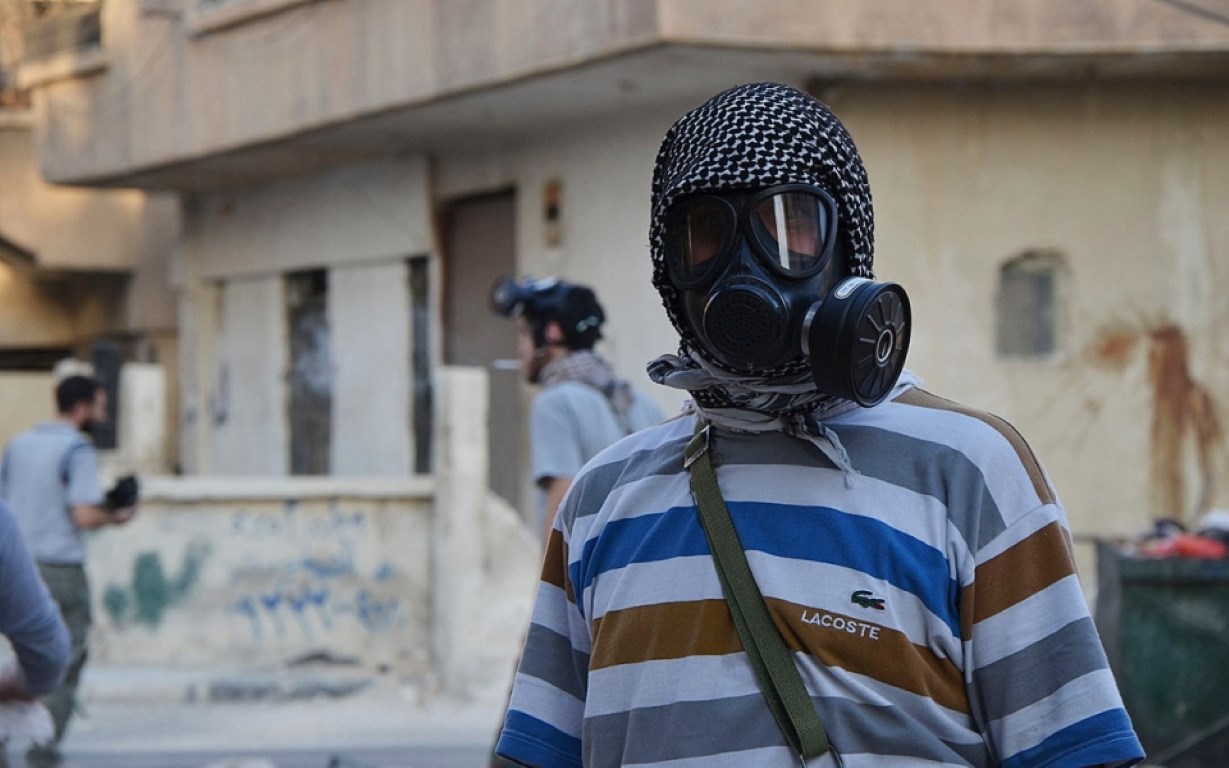France threatens intervention
March 9, 2018 | Expert Insights

On the 8th of February, high ranking French officials warned that they would not hesitate to take “intervention measures” if it was proved that the Syrian regime is using chemical warfare. The Assad regime in Syria has seen repeated accusations of a number of human rights abuses, including the use of chemical weapons.
Background
The modern state of Syria was established after World War I, marking the end of centuries of Ottoman rule. The state was handed over to France in a League of Nations mandate. According to the mandate, France would act as a trustee until the inhabitants could stand on their own. The Mandate for Syria and the Lebanon ended in October 1945. The Arab-Socialist Ba’ath Party gained power after a coup in 1963 and has remained in power since, headed first by Hafez al-Assad, and then by his son, current Syrian President Bashar al-Assad.
The Syrian civil war has been going on since 2011. It began during the Arab Spring protests due to resentment towards the Assad government. It now involves a number of factions with opposing interests: the Syrian government and its allies (including Russia and Iran); a loose alliance of Sunni Arab rebel groups (including the Free Syrian Army); the majority-Kurdish Syrian Democratic Forces (SDF) which is backed by the United States in the fight against ISIS; Salafi jihadist groups and the Islamic State of Iraq and the Levant (ISIS).
In recent months, Israel has increased its presence in Syria as well. The ongoing conflict between the US-allied Turkish government and a number of US-aligned Kurdish militia has stalled the fight against the Islamic State. A number of other countries in the world are directly and indirectly involved.
According to the United Nations Human Rights Office of the High Commissioner, Syria is the site of a number of human rights crimes “including deliberate and indiscriminate attacks on civilians and protected objects, starvation, unlawful internment, and the use of chemical weapons.” These crimes have thus far been carried out with complete impunity.
France has openly opposed the Assad regime since 2011. In 2012, it was reported that the country was directly funding rebel groups in the region. In the latter half of 2015, France conducted a number of air strikes in Syria.
Analysis
On Thursday, France announced that it would commence “intervention measures” if allegations of chemical warfare in Syria were proven to be true.
“If the use of chemical weapons was found, verified, attributed and the use of the chemical weapons left people dead,” France would take "intervention measures to prevent the proliferation of chemical weapons," Foreign Minister Jean Yves Le Drian, told a local news agency on Thursday.
While there has been no hard evidence linking the use of such weapons to the state thus far, Drian said, “There is an accumulation of convergences, accumulation of indications suggesting that chemical weapons can be used or have already been used.” No details were provided on what this intervention would entail.
Chemical weapons were first reported in Syria in 2013, when hundreds of civilians were killed in an attack thought to be carried out by the government. A UN investigative body, the Independent International Commission of Inquiry on the Syrian Arab Republic, was vetoed by Russia in 2017. Before its demise, the agency reported that at least two major chemical attacks were carried out in 2014 and 2015. In April 2017, a nerve agent was reportedly used in the town of Khan Shaykhun, killing over 70 people.
A UN Commission of Inquiry on War Crimes report released on Tuesday stated that chemical weapons were used by pro-regime forces in Eastern Ghouta. Witness reports from aid workers have also repeatedly stated that the regime is using such weapons. Since Assad’s assault on Eastern Ghouta began in February, approximately 1000 civilians have been killed, and over 300 injured. On Thursday, it was suspected that chemical weapons were used once again as victims were rushed to hospitals due to breathing difficulties.
In January, France imposed sanctions on 25 businesses and traders thought to have links to chemical weapons in Syria. The country also launched a political initiative called “No Impunity” against the spread of chemical arms. Since February, the United Nations has made calls for a month-long ceasefire in order to deliver aid. However, the Assad regime has continued to press on. “We will continue fighting terrorism ... and the Ghouta operation is a continuation of fighting terrorism,” President Assad told journalists on Sunday. The Syrian state has also denied all allegations that it uses chemical weapons.
Assessment
Our assessment is that Syria is facing a humanitarian crisis that has resulted in the death and injury of thousands of civilians. International organisations have been unable to provide effective aid due to the state’s refusal to call a ceasefire. We believe that Syrian allies could put pressure on Assad to allow relief efforts to reach the region. As stated previously, we believe that the international community must come together in order to end violence in the region.








Comments